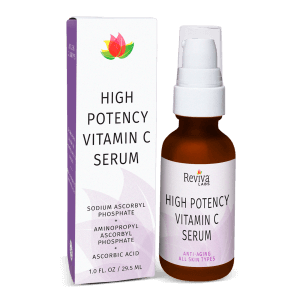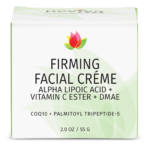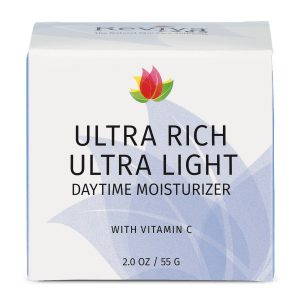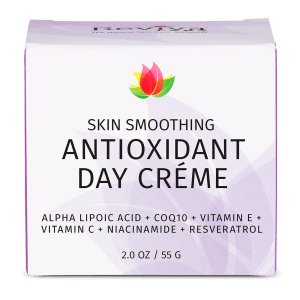Ingredients, Reviva Labs, Skin Care
How To Use Vitamin C in Your Skincare Routine
Incorporating vitamin C into your skincare routine can transform your complexion, providing a radiant glow and numerous health benefits. Vitamin C, also known as ascorbic acid, is a powerful antioxidant that can help reduce skin inflammation, pigmentation, and signs of aging. It’s a versatile ingredient that works well with many skin types and can be used in various forms, including serums, creams, and even powders.
Understanding the Benefits of Vitamin C
Vitamin C is renowned for its ability to brighten the skin. By inhibiting melanin production, it helps to fade dark spots and hyperpigmentation, giving your skin a more even tone. Furthermore, its antioxidant properties protect the skin from damage caused by free radicals, which are unstable molecules that can cause oxidative stress and lead to premature aging. In a study conducted by the Linus Pauling Institute, it was found that vitamin C can significantly improve skin hydration and elasticity, making it an essential ingredient for maintaining youthful skin.
Another key benefit of vitamin C is its role in collagen synthesis. Collagen is a protein that provides structure to your skin, and its production naturally decreases as we age. By boosting collagen production, vitamin C can help to reduce the appearance of fine lines and wrinkles. Additionally, its anti-inflammatory properties can soothe irritated skin and reduce redness, making it beneficial for those with sensitive or acne-prone skin.
Choosing the Right Vitamin C Product
When selecting a vitamin C product, it’s essential to consider the form of vitamin C used. L-ascorbic acid is the most potent and well-researched form, but it can be unstable and lose its effectiveness when exposed to air and light. To combat this, many skincare products use stabilized forms of vitamin C, such as ascorbyl palmitate or sodium ascorbyl phosphate, which can provide similar benefits with less risk of degradation.
The concentration of vitamin C in the product is also crucial. For most skin types, a concentration between 10-20% is effective and well-tolerated. Higher concentrations can provide more dramatic results but may also increase the risk of irritation, especially for those with sensitive skin. It’s always a good idea to start with a lower concentration and gradually increase it as your skin builds tolerance.
Incorporating Vitamin C into Your Routine
To maximize the benefits of vitamin C, it’s important to apply it correctly within your skincare routine. Typically, vitamin C products are best used in the morning. After cleansing and toning your skin, apply a few drops of your vitamin C serum to your face and neck. Follow with a moisturizer to lock in hydration and finish with a broad-spectrum sunscreen to protect your skin from UV damage. Vitamin C can make your skin more sensitive to the sun, so using sunscreen is crucial.
If you prefer to use vitamin C at night, ensure it’s the first step after cleansing and toning. This allows the serum to penetrate deeply and work effectively while you sleep. Some people may experience mild tingling or redness when first using vitamin C, but this should subside as your skin adjusts. If irritation persists, consider using the product every other day or switching to a lower concentration.
Pairing Vitamin C with Other Ingredients
Vitamin C can be paired with other active ingredients to enhance its benefits. For example, combining it with vitamin E and ferulic acid can increase its stability and effectiveness. This combination can provide superior antioxidant protection and further reduce signs of aging. Niacinamide is another excellent partner for vitamin C, as it can help to reduce inflammation and improve skin texture without compromising the efficacy of either ingredient.

However, be cautious when using vitamin C with other potent actives like retinoids or exfoliating acids. These ingredients can potentially increase the risk of irritation when used together. If you choose to incorporate multiple actives in your routine, consider alternating their use between morning and evening or on different days to avoid overloading your skin.
Common Myths About Vitamin C
Despite its popularity, several myths about vitamin C in skincare persist. One common misconception is that vitamin C is not suitable for sensitive skin. While it’s true that some forms of vitamin C can cause irritation, many people with sensitive skin can benefit from using stabilized forms or lower concentrations. Another myth is that vitamin C can replace sunscreen. While vitamin C can provide some protection against UV damage, it is not a substitute for sunscreen. Always use a broad-spectrum SPF in conjunction with your vitamin C product for optimal protection.
Some people believe that vitamin C should not be used with niacinamide due to potential interactions. However, recent research has shown that these two ingredients can be used together without reducing their effectiveness. This combination can offer powerful anti-aging and anti-inflammatory benefits, making it a valuable addition to any skincare routine.
Storing and Maintaining Vitamin C Products
To ensure the longevity and effectiveness of your vitamin C products, proper storage is essential. Vitamin C is sensitive to light, air, and heat, which can cause it to degrade and lose potency. Store your products in a cool, dark place, and consider purchasing formulations in opaque or air-tight packaging to minimize exposure to the elements. If you notice any changes in the color or smell of your product, it may be a sign that it has oxidized and is no longer effective.
Conclusion
Vitamin C is a powerhouse ingredient that can transform your skincare routine by brightening your complexion, reducing signs of aging, and protecting your skin from environmental damage. By choosing the right product, applying it correctly, and pairing it with complementary ingredients, you can harness the full benefits of this versatile nutrient. Remember to store your products properly to maintain their effectiveness and always use sunscreen to protect your skin from UV damage. With consistent use, vitamin C can help you achieve a healthier, more radiant complexion.










